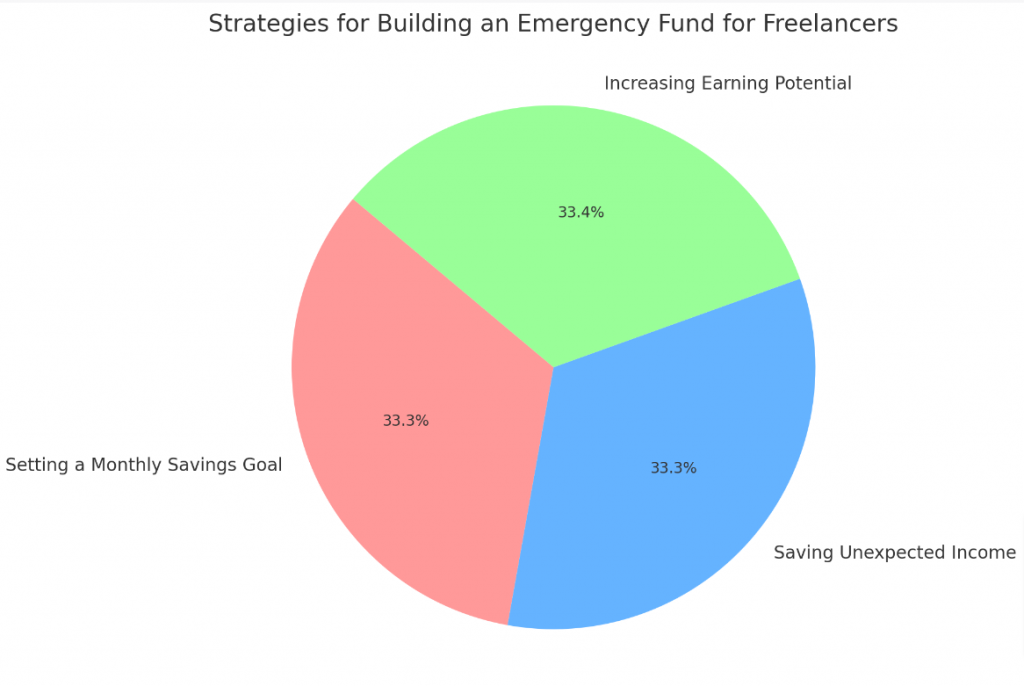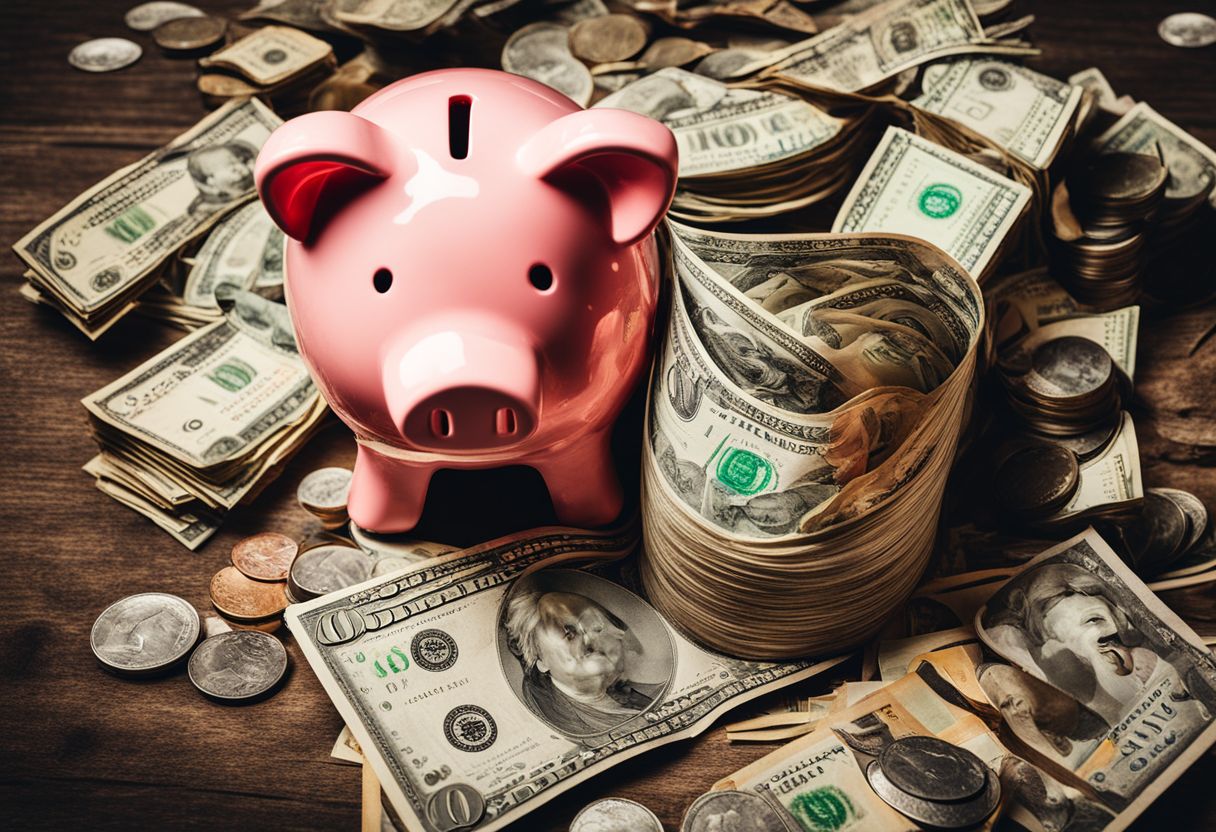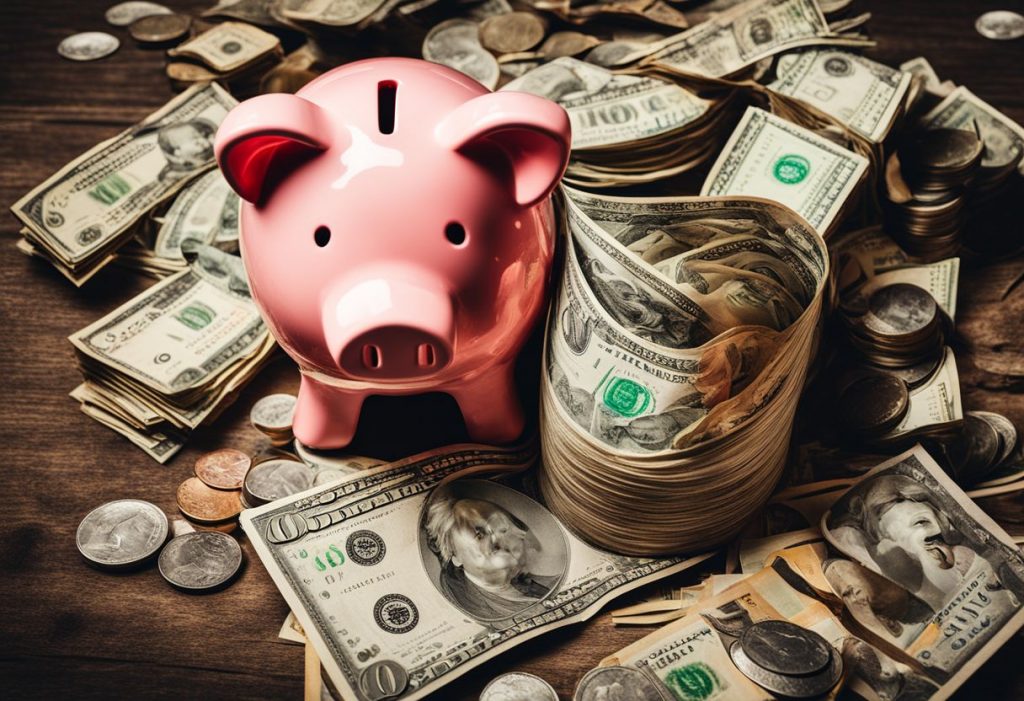Building Financial Security: Understanding the Importance of Emergency Funds in Freelance Work
Freelancing offers incredible flexibility, but it comes with unpredictable income that can be a cause for concern. Did you know 45% of freelancers report not being paid on time? This article will provide practical strategies to build an emergency fund that serves as a safety net during low-income periods or unforeseen expenses.
Read on if you want financial stability amidst the ebbs and flows of freelance life!
Key Takeaways
- Freelancers often have unpredictable income and need an emergency fund to protect themselves during slow work periods.
- An emergency fund provides a safety net for unforeseen expenses and late payments, reducing financial stress in freelance work.
- To calculate your emergency fund needs, assess your monthly expenses and multiply by the number of months you wish to cover.
- Steps to build an emergency fund as a freelancer include setting a monthly savings goal, saving unexpected income, and increasing earning potential.
Understanding Emergency Funds in Freelance Work
Emergency funds serve as financial safety nets, offering protection and security for freelancers. The unique nature of freelance work often brings unpredictable income coupled with irregular cash flow.
This lack of certainty elevates the importance of having an emergency fund which could cover at least six months’ worth of expenses such as rent, food costs, and debt payments.
In addition to serving as a buffer during slow work periods or instances of complete loss of income, these savings also cater to unexpected expenses that may arise suddenly in any freelancer’s life.
Insurance like health or homeowners insurance might not cover all emergencies you face; thus, having an accessible fund becomes crucial to managing financial stress effectively. Furthermore, a substantial emergency fund can provide peace mind since it reduces dependency on credit cards or loans in case immediate funds are required.
The Necessity of an Emergency Fund for Freelancers
Freelancers face unpredictable income and need an emergency fund to protect themselves during slow work periods.
Unpredictable income
Freelancers navigate the choppy waters of unpredictable income regularly. Unlike traditional employment with its steady paycheck, freelancing can feel like riding an economic roller coaster.
One month might bring a windfall, while another could see minimal earnings as gigs dry up or client payments lag.
Manageable during prosperous times, unpredictable income takes on added stress in periods of financial strain or emergency situations. According to a Bill.com survey, 45% of freelancers experience late payment issues which further exacerbates the uncertainty.
The erratic nature of freelancer earnings makes having an emergency fund crucial for financial stability and stress reduction.
Protection during slow work periods
Freelancers face the unique challenge of irregular income. During slow work periods, protection is crucial to avoid financial stress. An emergency fund serves this purpose effectively by providing a safety net for unforeseen expenses and late payments.
The unpredictable nature of freelance work can lead to loss of income, making an emergency fund not only beneficial but necessary for financial stability. This strategy helps manage any sudden household expenses or short-term personal loans efficiently without disrupting your overall savings and investment plan.
How to Calculate Your Emergency Fund Needs
Estimating the amount you need in your emergency fund involves assessing your monthly expenses and multiplying by the number of months you wish to cover.
- List all recurring expenses. This includes housing costs, utilities, groceries, transportation, health care, and any debt payments.
- Don’t ignore irregular but necessary expenses. These can be car maintenance, annual insurance premiums or yearly association fees.
- Consider discretionary spending such as entertainment and dining out.
- Total these expenses to determine your monthly financial obligation.
- Multiply this monthly total by six (or a number that makes you comfortable), according to expert suggestions for freelancers’ emergency funds.
- Remember that your emergency fund should cover at least six months of living expenses. Aim for this as a primary goal.
- Understand that an emergency fund is not static; revisit it often as your life circumstances change.
Steps to Build an Emergency Fund as a Freelancer
Set a monthly savings goal, save unexpected income, and increase your earning potential to build an emergency fund as a freelancer. Read on to learn more about the importance of emergency funds in freelance work.
Setting a monthly savings goal
Setting a monthly savings goal is an essential step in building an emergency fund as a freelancer. By determining how much you can realistically save each month, you create a target to work towards.
Aim to set aside a specific percentage of your income or a fixed amount that aligns with your financial situation and goals. It’s important to consider both your regular expenses and any unexpected costs that may arise.
By consistently saving towards your monthly goal, you’ll steadily build up your emergency fund over time, providing yourself with the financial security and peace of mind that freelancers often need.
Saving unexpected income
Freelancers often experience fluctuations in their income, making it crucial to have a safety net for unexpected expenses. That’s where saving unexpected income comes into play. Whether you receive a bonus from a client or unexpectedly land a high-paying project, setting aside a portion of this extra money can contribute to building your emergency fund.
By consistently putting away funds from these windfalls, you can ensure that you have enough savings to cover unforeseen costs without disrupting your regular budget.
Increasing your earning potential
Freelancers have the unique advantage of being able to increase their earning potential by taking specific actions. One way to do this is by expanding their skillset and offering a wider range of services, which can attract more clients and lead to higher-paying projects.
Additionally, freelancers can invest in professional development opportunities such as workshops or online courses to enhance their expertise and stand out in the competitive freelance market.
By consistently improving their skills and staying up-to-date with industry trends, freelancers can position themselves for higher-paying gigs and ultimately increase their earning potential.
The Role of an Emergency Fund in Enhancing Freelancing
An emergency fund plays a crucial role in enhancing freelancing. As mentioned earlier, freelancers face unpredictable income and may experience late payments or contract cancellations.
In these situations, having an emergency fund provides a safety net and ensures financial stability during lean periods. It allows freelancers to cover their basic expenses without relying on credit cards or taking on debt.
Moreover, building an emergency fund requires discipline and budgeting skills, which are essential for managing finances effectively as a freelancer. By having this financial cushion, freelancers can focus more on their work, take calculated risks to grow their business, and have peace of mind knowing that they can handle unexpected emergencies or setbacks without compromising their long-term goals.

Real-life Uses for Emergency Funds
Emergency funds have a crucial role to play in the lives of freelancers. They provide a sense of security and can be used in various real-life situations. Here are some practical uses for emergency funds:
- Covering essential expenses during periods of no income.
- Paying for unexpected medical or dental expenses.
- Handling car repairs or other unforeseen vehicle – related costs.
- Dealing with home emergencies, such as plumbing or electrical issues.
- Supporting yourself during times of unemployment or loss of clients.
- Taking care of urgent family needs, such as sudden travel expenses.
- Protecting against unexpected tax bills or legal fees.
Conclusion
In conclusion, having an emergency fund is crucial for freelance workers. With unpredictable income and the potential for late payments or lost contracts, freelancers need a financial safety net to navigate through difficult times.
Building an emergency fund takes discipline and budgeting, but it provides peace of mind and financial stability. Prioritizing the creation of an emergency fund should be a fundamental part of any freelancer’s financial planning strategy.

